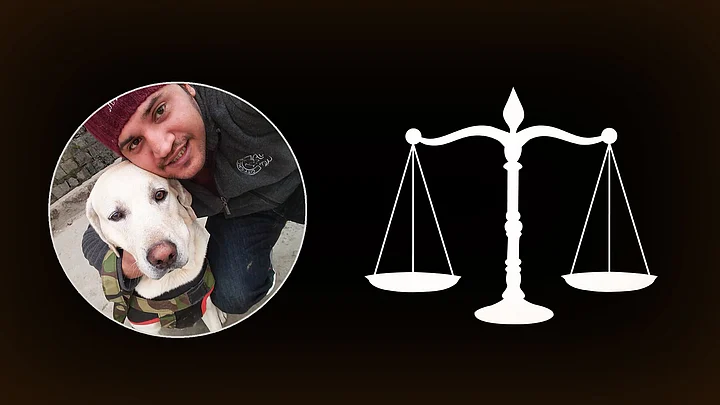The events surrounding Sidharth Sharma’s death follows a familiar pattern. An innocent person lost his life because of the acts/omissions of another person. The loved ones of the victim and the general public rightfully expect and demand that the wrongdoer be punished and justice be served.
It is then discovered that the alleged wrongdoer will get away with ‘minor’ consequences because he happens to be under a certain age- a juvenile. The victim’s family and the general public feel a sense of helplessness and betrayal. It is argued that the punishment provided in law is not proportionate to the act of the offender and that if he/she was old enough to commit the act in question, he/she is also old enough to bear the consequences and must not be let off ‘lightly’. In this case there is also a demand that if not the juvenile, then his parents must suffer harsh consequences- they were reckless in letting a juvenile drive.
The police authorities have responded by framing serious charges against the father- that of abetment and death due to negligent driving. Neither charge will survive scrutiny in a court and appears to be aimed at assuaging the anger of the family.
Who’s At Fault?
- Sidharth Sharma’s
hit-and-run case brings forth a bizarre legal anomaly, that of fixing
accountability when the accused is a juvenile.
- The question is
whether the current provisions of the Motor Vehicles Act are sufficient enough
to punish the culprit.
- The charges
framed by the police against the errant juvenile’s father will not survive the legal
scrutiny.
- Fixing
accountability with parents of a juvenile will be difficult, the most tedious part being, giving a proof of ‘permission’.
Should the Parents of a Juvenile be Punished?
Would a law which provides severe punishment for the parents of a negligent juvenile driver help matters? I’m afraid not.
Permitting a minor to drive a vehicle is punishable with 3 months imprisonment and/or a thousand rupee fine. Under the Motor Vehicles Act, the owner of the vehicle is liable to compensate the victim. It is however being argued that this punishment must be enhanced and imprisonment be made the norm. There are various complications here: what happens if the parent in question is out of town? What if the juvenile in question is driving the vehicle of a friend who is a major or of the parent of another juvenile person?
Secondly, even when the aforementioned exceptions are not present, it is near impossible to prove ‘permission’- keep in mind that the burden of proof lies with the prosecution.
But what if knowledge of the child driving the vehicle can also be proved, should the parent suffer harsh/prolonged imprisonment in that case? I will take an unpopular view here and say no.
A parent must suffer imprisonment if they allow their child to carry and use a gun but imprisonment for a child using a vehicle is harsh and ignores the dynamics of a family. It is delusional to believe that all parents exercise absolute control over the acts of a 17-year-old.
What’s the Solution?
Permanent cancellation of driving licence, confiscation of all vehicles owned by the parents is a possible solution; prolonged and harsh imprisonment is not. In this particular case there are reports that the accused was a habitual reckless driver and was warned and let off by the police. This is the failure of the police. The accused should have been sent for counselling the first time when the wrongdoing was reported. The police is as complicit in this tragedy, if not more, than any other person.
Should everyone less than 18 years of age be free to murder people on the road? No. Juvenile offenders/children in conflict with law are sent to juvenile homes and suffer lesser punishment as compared to adults. The rationale behind this is that the purpose of punishment is both retributive as well as reformative.
India’s Hell Holes
The more important concerns to raise are whether juvenile homes are doing the job they are supposed to do. A 2013 report by the Asian Centre for Human Rights (ACHR), “India’s Hell Holes: Child Sexual Assault In Juvenile Justice Homes” cited here states as follows, “It will not be an understatement to state that juvenile justice homes… have become India’s hell holes where inmates are subjected to sexual assault and exploitation, torture and ill-treatment, apart from being forced to live in inhuman conditions.”
The report goes on to highlight 39 cases of repeated sexual assault on children in juvenile justice homes, including government-run observation homes, children’s homes, shelter homes and orphanages.
Our focus therefore, needs to shift to ensuring that juvenile homes reform children in conflict with law.
A youngster acted recklessly and the result was a tragic and unfortunate loss of life. It is natural for everyone concerned to feel outraged but policy prescription must remain dispassionate and objective. The answer to one tragedy cannot be the creation of many more.
(The writer is a lawyer practising in Delhi)
Also Read: Why We Need to Watch the Mercedes Hit-and-Run Video
(At The Quint, we question everything. Play an active role in shaping our journalism by becoming a member today.)
